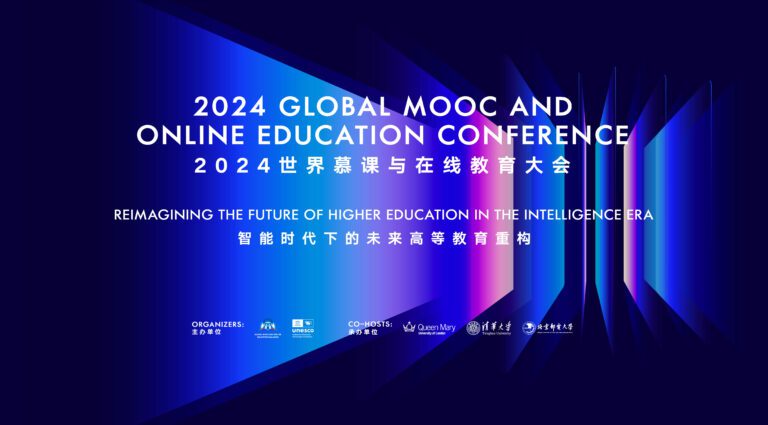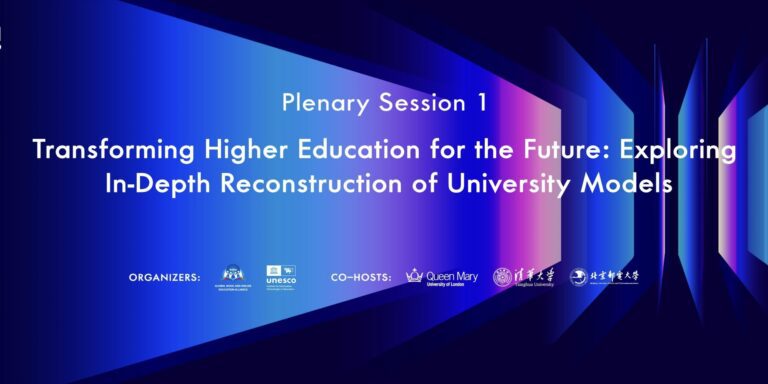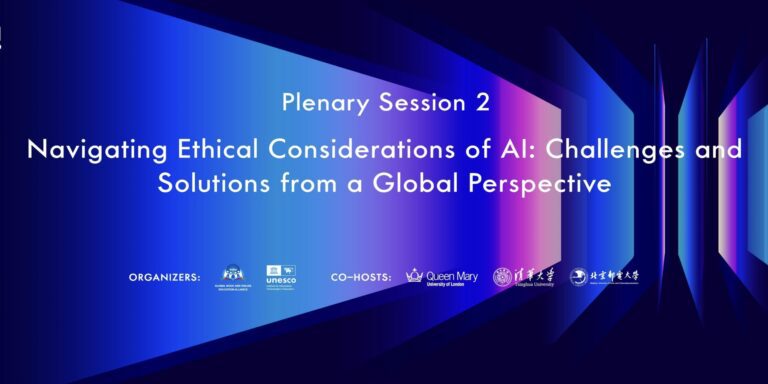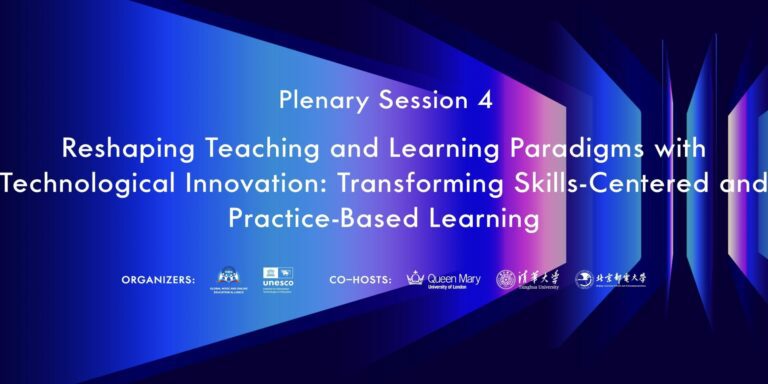Plenary Session 3 of the 2024 Global MOOC and Online Education Conference, titled “Embracing the New Era of Lifelong Learning: Integrating Future-Oriented Workforce Skills with Digital Literacy,” was successfully held on the morning of December 13th, 2024, London time. The conference was organized by the Global MOOC and Online Education Alliance and the UNESCO Institute for Information Technologies in Education, with Tsinghua University, Beijing University of Posts and Telecommunications, and Queen Mary University of London as co-hosts.
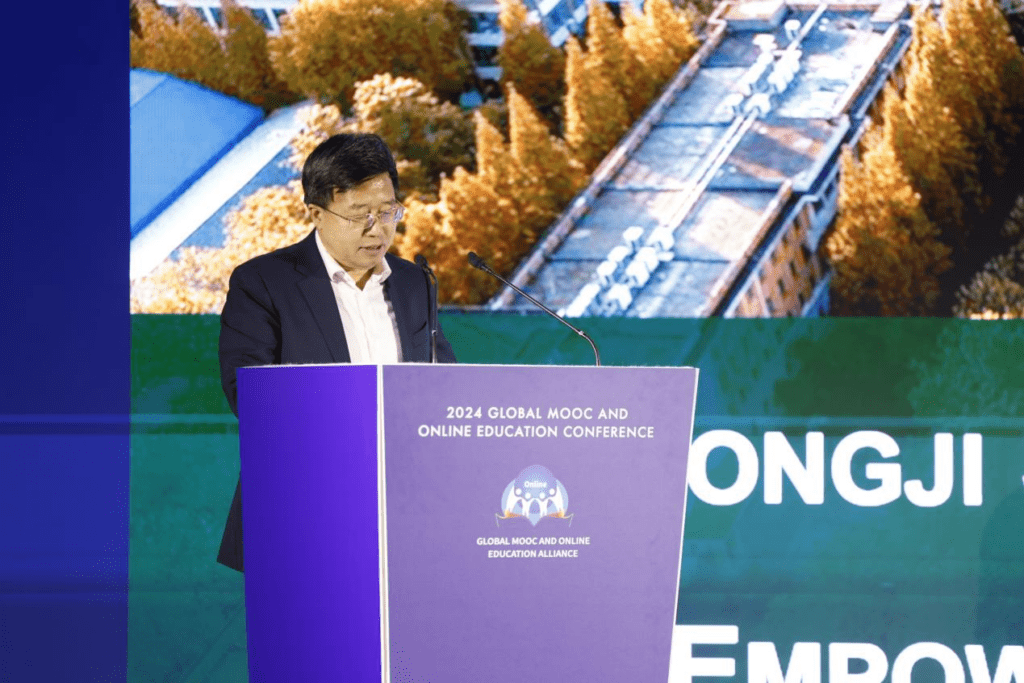
During the Keynote Presentations, Professor Zhao Xianzhong, Vice President of Tongji University outlined the future development of education in China, particularly the application of artificial intelligence in education, against the backdrop of UNESCO’s Education 2030 agenda. Based on Tongji University’s teaching practices, he introduced the integration trends between AI and modern education from four aspects: talent training model, curriculum system, teaching methods, and teacher training. He emphasized the importance of focusing on AI-related or AI-embedded course development and enhancing teachers’ AI literacy and abilities, so that AI can better support students’ growth and development.
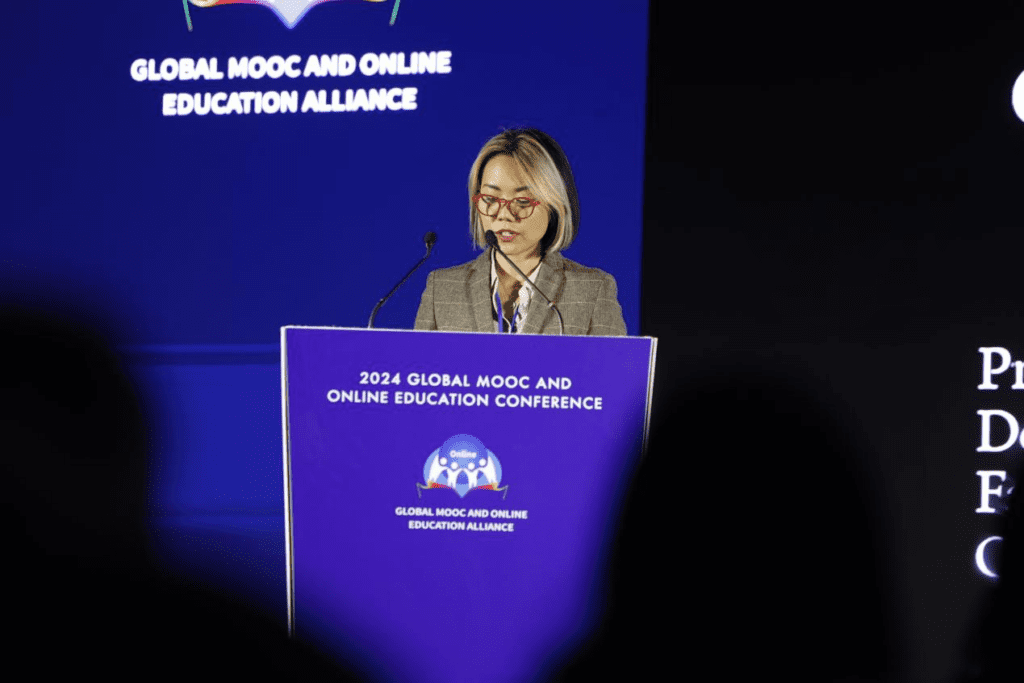
Professor Chie Adachi, Dean for Digital Education of Queen Mary University of London, defined the ability to master AI as a fundamental and core skill for future human learning. In a future world fully embracing AI, people should not only fully adopt emerging technologies and master the core skill of utilizing AI technology but also keenly perceive the value of human subjectivity, based on emotions, culture, creativity, and other characteristics, making AI a valuable assistant in creating more value. She added that the university will provide educational support to students through its Centre for Excellence in Artificial Intelligence in Education.
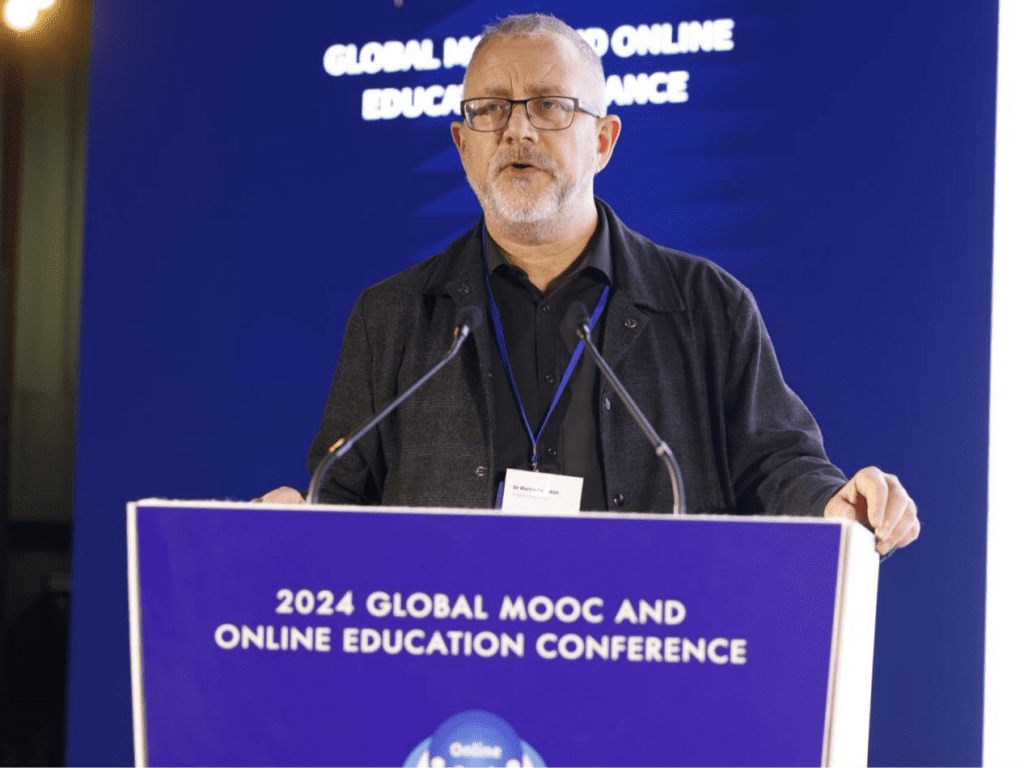
Dr. Martin Compton, College Lead for AI and Innovation in Education and Programme, Module & Assessment Design Lead of King’s College London, believed that we should view the changes and challenges brought by AI technology to education optimistically. Universities should embrace AI, help students cultivate AI literacy, and provide stronger support for AI-related research and exploration. By offering relevant courses, universities can inspire people to think deeply about AI technology.
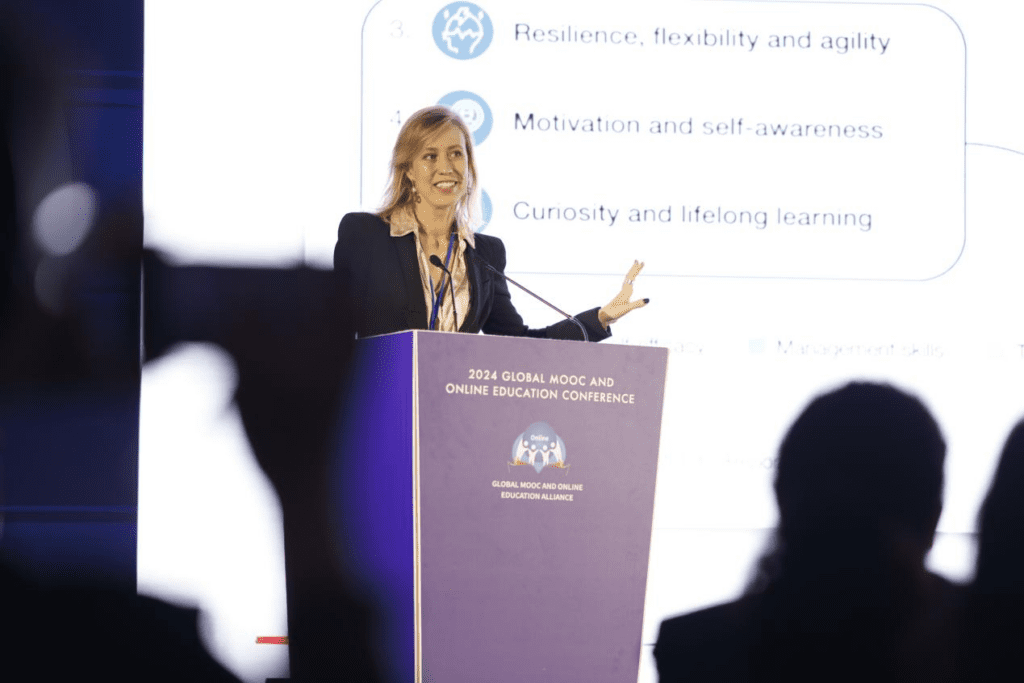
Ms. Dasha Karzunina, Director of Strategy and Product Marketing of edX, introduced edX’s global educational plans and shared its experience in continuously adapting to market demands and meeting the needs of the knowledge economy. She proposed that possessing lifelong learning abilities is key to ensuring personal employability. In the era of AI, it is crucial to clarify the motivations and goals of lifelong learning, improve self-learning efficiency, grasp the essentials of online learning, and ultimately let learning contribute to personal life and workplace success, truly making oneself a lifelong learner.
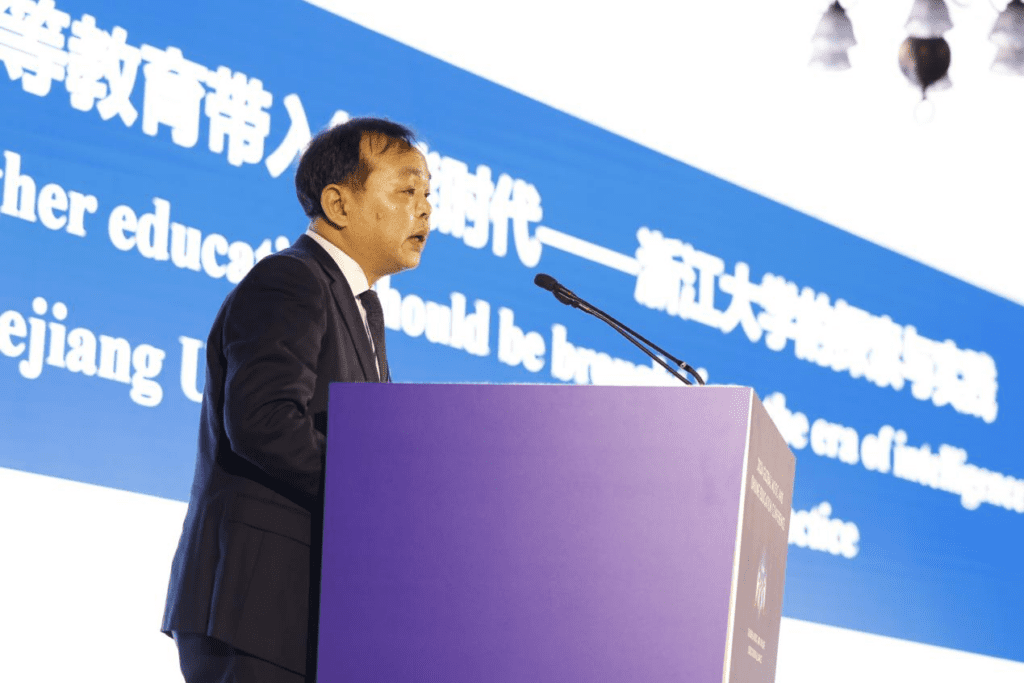
Professor Zhang Guangxin, Dean of Undergraduate School in Zhejiang University shared ZJU’s exploration and practice in higher education and intelligent technology. He stated that Zhejiang University, relying on the AI Education and Teaching Research Center, actively explores in areas such as systematic knowledge, constructive abilities, creative values, and humanistic ethics, and has released a red book on AI literacy of college students. Zhang Guangxin elaborated in detail on ZJU’s actions and practices in artificial intelligence from two dimensions: AI for education (enhanced) and AI in education (reshaped). In the future, the university will continue to work on topics such as learning effectiveness evaluation and reshaping of educational organization management systems.
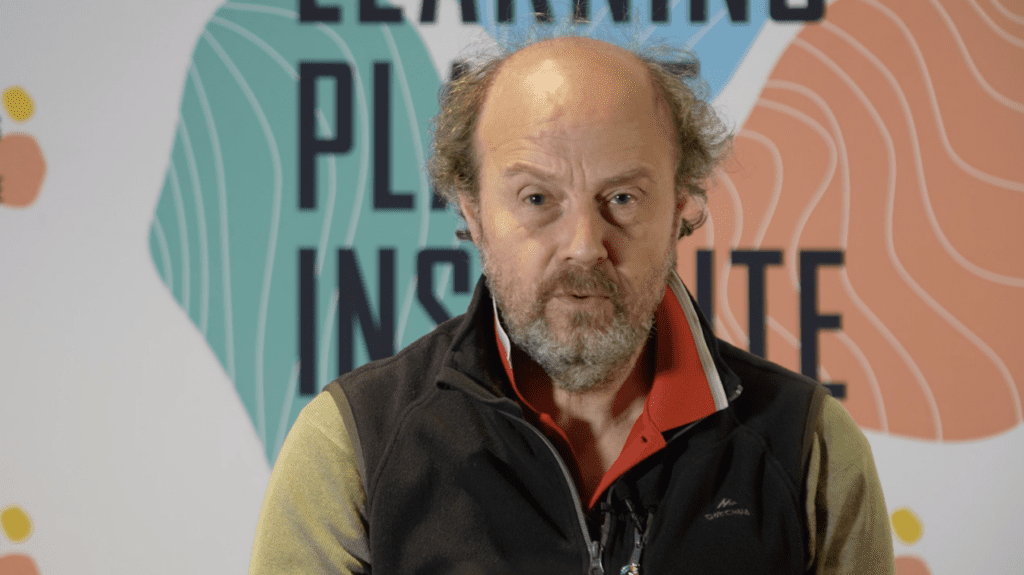
Professor François Taddéi, Founder and President of the Learning Planet Institute, shared his insights on the future development prospects of education and training. He stated that lifelong learning is a topic that everyone must face in the future. Currently, AI is significantly changing traditional learning methods, and people need to quickly adjust their understanding to adapt to developments and changes in the field of education. They should actively acquire more necessary knowledge through AI and other technological tools, possess the ability to cognize and explore the world, especially not neglecting AI’s outstanding advantages in providing feedback and exposing students’ weaknesses.
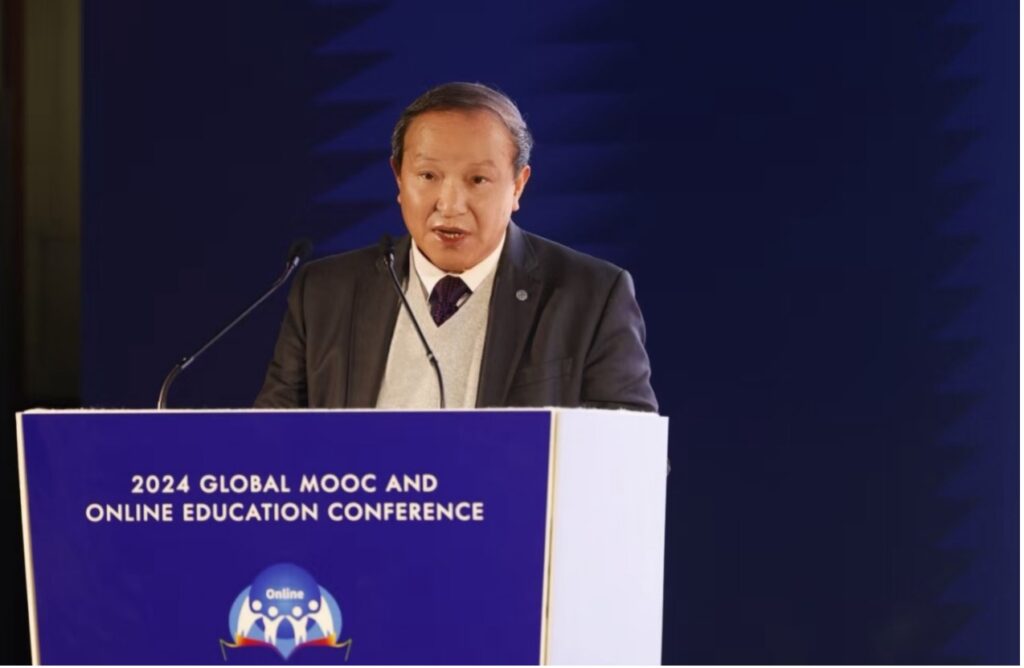
Professor Bie Dunrong, Dean of Institute of Education of Xiamen University, stated that AI is currently in a period of reorganization, reshaping the social system, bringing both positive impacts and challenges in technology, security, ethics, society, and the economy. As institutions leading AI development, universities have the responsibility to maximize the use of AI to nurture talents and provide AI knowledge. The emergence of AI has added a new dimension, namely the virtual world. University education needs to transcend tradition and nurture talents across natural, social, and virtual dimensions, ensuring that AI contributes to personal and social development and the progress of human civilization.
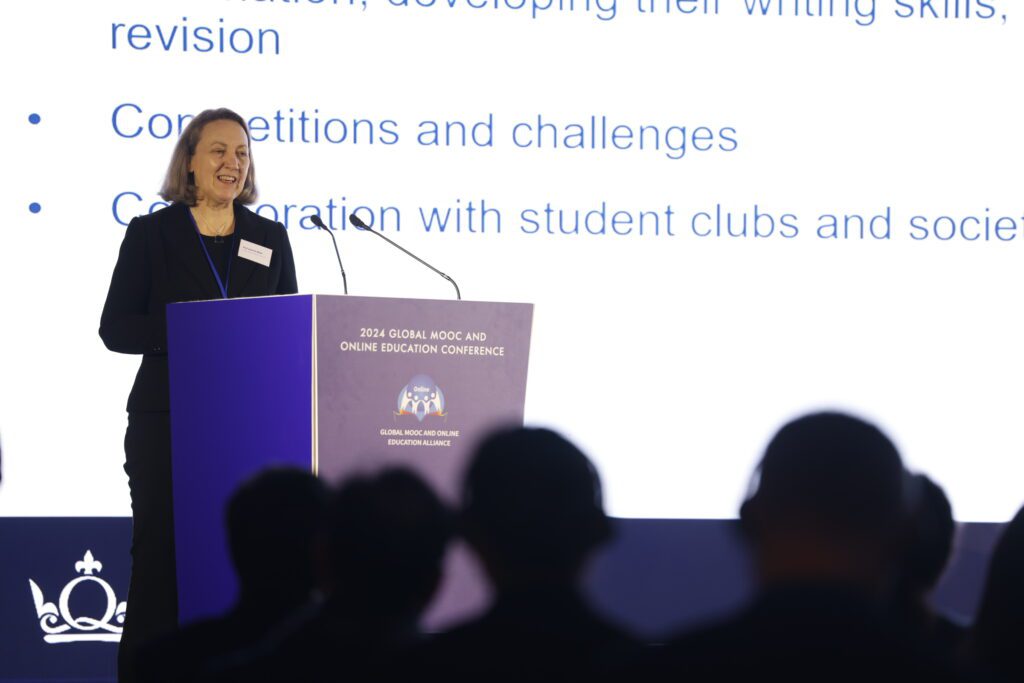
Professor Janet De Wilde, Director of QM Academy of Queen Mary University of London, stated the foundational principles of the Centre for Excellence in Artificial Intelligence in Education. She highlighted that the Centre aims to guide students in enhancing their AI literacy and adapting to job market demands; fulfill universities’ responsibilities and demonstrate leadership in the field of education; cultivate students’ critical thinking and ability to apply AI; and empower teachers with better teaching resources.
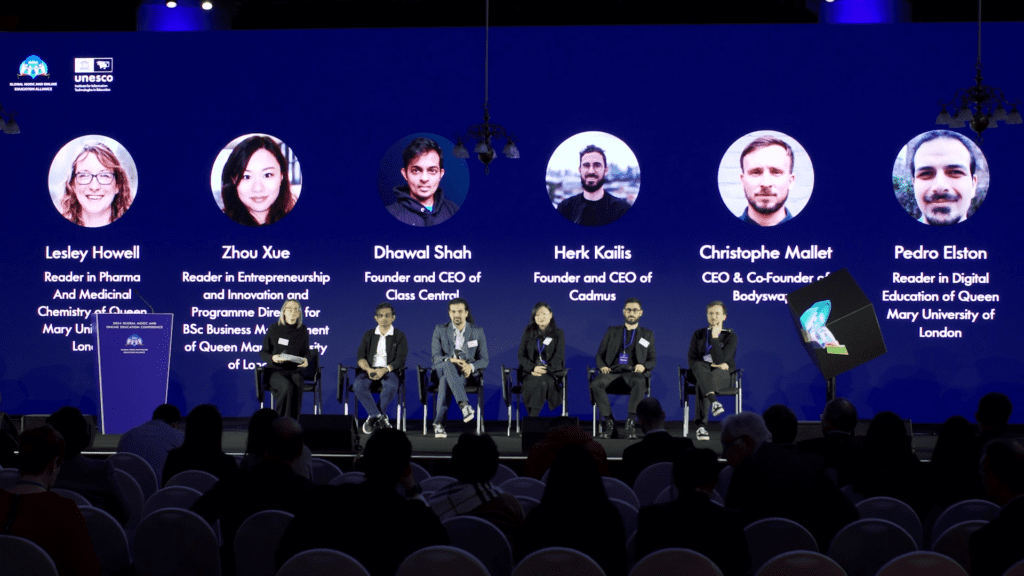
During the Panel Discussion, Zhou Xue, Reader in Entrepreneurship and Innovation and Programme Director for BSc Business Management of Queen Mary University of London, Dhawal Shah, Founder and CEO of Class Central, an online education search engine, Herk Kailis, Founder and CEO of Cadmus, an online learning platform for higher education, Christophe Mallet, CEO & Co-Founder of Bodyswaps, an AI learning application, Pedro Elston, Reader in Digital Education of Queen Mary University of London, exchanged ideas on AI’s role in future workforce skills, empowering online learning courses, optimizing student assessment, learning soft skills, assisting medical education, and scientific experiments.
The Keynote Presentations and Panel Discussion were moderated by Janet De Wilde, Director of QM Academy of Queen Mary University of London and Lesley Howell, Reader in Pharma and Medicinal Chemistry of Queen Mary University of London, respectively.

